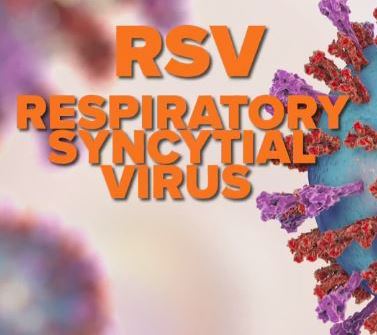
What is RSV (Respiratory syncytial virus)? Its Symptoms and Prevention.
-
by bytethebuzz
- 2231

Respiratory syncytial virus (RSV) is a common virus that can cause respiratory illness. It is typically spread through respiratory secretions, such as saliva or mucus, when an infected person coughs or sneezes. Symptoms of RSV infection can include fever, runny nose, cough, and difficulty breathing. In most cases, the illness is mild and resolves on its own. However, RSV can be serious, especially in infants, older adults, and people with weakened immune systems.
To prevent the spread of RSV, it is important to practice good hygiene, such as washing your hands regularly with soap and water and avoiding close contact with people who are sick. If you are caring for a person with RSV, it is also important to clean and disinfect surfaces and objects that may be contaminated with the virus. In some cases, healthcare providers may recommend a medication called palivizumab, which can help prevent RSV infection in high-risk individuals.
SYMPTOMS:
The symptoms of respiratory syncytial virus (RSV) infection can vary depending on the severity of the illness and the age of the person infected. Common symptoms of RSV infection include:
- Fever
- Runny nose
- Cough
- Difficulty breathing or rapid breathing
- Chest congestion or wheezing
- Loss of appetite
- Irritability or fussiness in infants and young children
In severe cases, RSV infection can lead to pneumonia or bronchiolitis, which can cause more severe symptoms, such as:
- Rapid breathing or difficulty breathing
- Bluish color of the skin due to lack of oxygen
- Chest retractions (pulling in of the chest with each breath)
- Wheezing or difficulty feeding
- Severe fatigue or lethargy
If you or your child are experiencing any of these symptoms, it is important to contact your healthcare provider for further evaluation and treatment.
PREVENTION:
To prevent the spread of RSV, it is important to practice good hygiene, such as washing your hands regularly with soap and water and avoiding close contact with people who are sick. If you are caring for a person with RSV, it is also important to clean and disinfect surfaces and objects that may be contaminated with the virus. In some cases, healthcare providers may recommend a medication called palivizumab, which can help prevent RSV infection in high-risk individuals.
Read More at: https://www.cdc.gov/rsv/references.html#factsheet
Respiratory syncytial virus (RSV) is a common virus that can cause respiratory illness. It is typically spread through respiratory secretions, such as saliva or mucus, when an infected person coughs or sneezes.
Respiratory syncytial virus (RSV) is a common virus that can cause respiratory illness. It is typically spread through respiratory secretions, such as saliva or mucus, when an infected person coughs or sneezes.